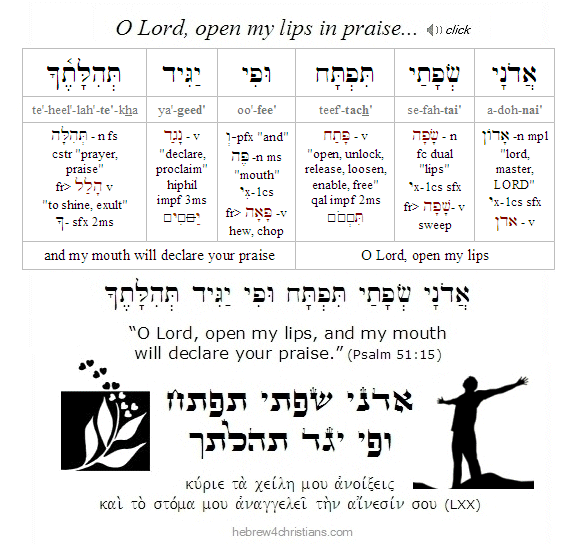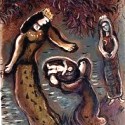|
Parashah Shemot includes the story of the birth of Moshe (Moses), the great deliverer of the people of Israel, during the perilous time when Pharaoh of Egypt had decreed to destroy all the Hebrew male children. His mother Yoche'ved (יוֹכֶבֶד) attempted to hide him for a few months, but soon realized she could no longer do so and placed him in a basket among the reeds of the Nile before anyone could kill him. Her seven year old daughter Miriam (מִרְיָם) stood by and watched to see what would happen to her brother.
Providentially, Pharaoh's daughter came to bathe in the Nile and discovered the basket among the reeds. Moved by pity, the princess decided to adopt the baby even though he was a "despised Hebrew." Miriam (who witnessed all this) then approached the princess and offered to find a nursemaid for the child - and cleverly arranged for Moses' own mother to do the job!
When the child grew up, Yocheved brought him to Pharaoh's daughter and he became her son, a prince of Egypt. She named him Moses (משֶׁה), "Because," she said, "I drew him out of the water" (a play on the word מָשָׁה, which means "to draw out, to save").
According to midrash (Shemot Rabbah 1:31), as a very young lad Moses was once seen throwing Pharaoh's gold crown down to the ground. Upon learning of this apparent act of insolence, Pharaoh devised a test to see if the child understood the implications of his actions. He therefore commanded that a platter with a piece of gold and a glowing piece of coal be brought before Moses and ordered the little boy to choose one. If Moses chose the gold, it would imply that he understood its value, and therefore he would be killed. On the other hand, if Moses chose the burning coal, he would be spared since he was unable to differentiate between gold and a glowing piece of coal.
Moses began to reach out for the gold when an angel pushed his hand aside and he grabbed the coal instead. Moses then immediately put his hand in his mouth, but that burned his lips and tongue so badly that he had a permanent speech impediment as a consequence.
Later, when God commissioned Moses to speak to the children of Israel, he protested to the LORD that he was kevad peh - "heavy of mouth" and kevad lashon, "heavy of tongue," and therefore unable to speak on behalf of the LORD (Exod. 4:10). God reminded him that He was the Creator of the mouth: "Who makes him mute, or deaf, or seeing, or blind? Is it not I, the LORD?" (Exod. 4:11). The LORD was then angry with Moses for his reluctance and decreed that "because of your words" he would not be permitted to be a kohen (priest), but his brother Aaron would.
When God instructed Moses to go to the people of Israel to announce their coming deliverance, he asked Him: "What if Israel refuses to believe that You have sent me?" God then gave Moses some "signs" to authenticate his message. But why was the rod thrown down changed into a snake? Rashi said that this was meant to show Moses that he had spoken ill of the Jews (lashon hara), just as the snake spoke evil of God in the Garden of Eden. The hand that was made "leprous" (afflicted with tzara'at) also is connected with harboring lashon hara within one's heart.
Hebrew Lesson
Psalm 51:15 reading (click):
 |
|



